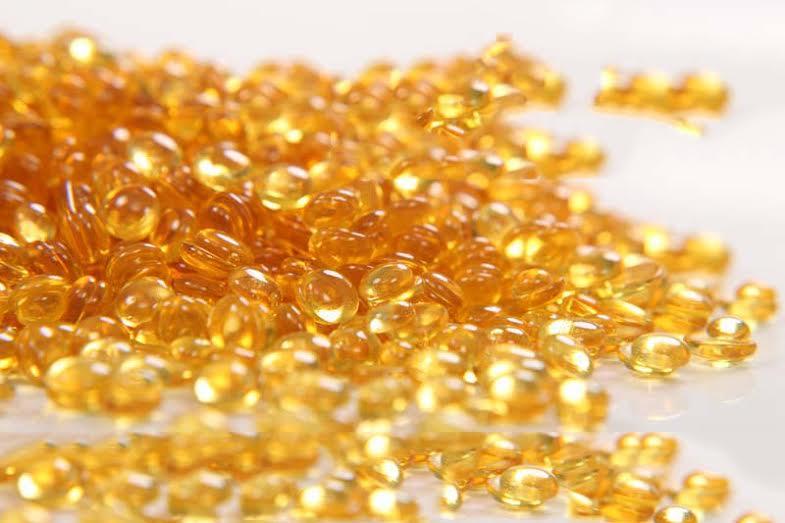The dimer acid-based (DAB) polyamide resin market is projected to reach a size of USD 2,814.3 million in 2024. By 2034, the market revenue is anticipated to surge to USD 5,550 million. The demand is expected to rise at a CAGR of 7% from 2024 to 2034. One significant factor is the increasing demand for eco-friendly and sustainable materials across various sectors, such as automotive, packaging, and electronics.
DAB polyamide resin, derived from renewable sources, offers excellent properties like high heat resistance, chemical resistance, and mechanical strength. Hence, it emerged as a preferred choice for manufacturers looking to meet stringent environmental regulations. Additionally, the expanding applications of DAB polyamide resin in 3D printing and additive manufacturing are driving market growth as these technologies continue to revolutionize production processes.
The industry faces certain restraints. One notable challenge is the volatility in raw material prices, particularly dimer acids derived from natural oils. Fluctuations in crude oil prices and supply chain disruptions can significantly impact the production cost of DAB polyamide resin, thereby affecting its market competitiveness. Moreover, the limited availability of skilled labor and specialized equipment for processing DAB polyamide resin may pose challenges for manufacturers, hindering the industry's growth potential in certain regions.
Request Your Sample Report Now! https://www.futuremarketinsights.com/reports/sample/rep-gb-337
Amidst challenges, the market is ripe with opportunities for expansion. With its exceptional mechanical properties and ability to replace traditional materials like metal and glass fiber composites, DAB polyamide resin is well-positioned to capitalize on the trend toward lightweight in these sectors. Additionally, the rising investments in research and development for innovative applications, such as bio-based composites and 3D printing materials, offer avenues for market players to diversify their product offerings and gain a competitive edge.
In line with technological advancements, the dimer acid-based (DAB) polyamide resin industry is witnessing several noteworthy trends. One prominent trend is the emergence of bio-based DAB polyamide resin formulations, driven by the growing focus on sustainability and reducing carbon footprint. Manufacturers are increasingly exploring renewable feedstock and green chemistry processes to produce DAB polyamide resin with enhanced environmental credentials.
The integration of DAB polyamide resin in advanced manufacturing techniques like selective laser sintering (SLS) and fused deposition modeling (FDM) is revolutionizing the production of complex geometries and customized parts, fueling innovation in industries ranging from automotive to healthcare.
“The growing emphasis on lightweight and high-performance materials in industries such as aerospace and defense presents a lucrative opportunity for DAB polyamide resin manufacturers.” Says an FMI Analyst.
Key Takeaways from the Market Study
· The forecasted CAGR of 3.9% for the United States indicates a moderate growth rate in the market.
· With a CAGR of 2.7% through 2034, the United Kingdom demonstrates steady growth.
· Germany, posting a CAGR of 3.3%, anticipates stable economic growth driven by engineering expertise, focusing on quality materials and technological advancements.
· India stands out with a remarkable CAGR of 10.5%, offering promising opportunities for startups and established players.
· China experiences significant growth with a CAGR of 7.9%, fueled by its manufacturing industry and environmental concerns, driving the adoption of DAB resins and aligning with sustainability goals.
Competition Outlook of the Dimer Acid-based (DAB) Polyamide Resin Market
The competition outlook for the dimer acid-based (DAB) polyamide resin industry appears dynamic and promising, driven by several factors influencing market dynamics. Firstly, the increasing demand for eco-friendly and sustainable materials in various end-use industries, such as coatings, adhesives, and textiles, has propelled the growth of the DAB polyamide resin market.
As environmental concerns continue to gain momentum globally, manufacturers are focusing on developing bio-based alternatives to conventional petrochemical-derived products, thereby intensifying competition within the industry. Additionally, technological advancements and innovations in resin formulation and production processes are enabling companies to enhance product performance and expand their market presence, fostering a competitive landscape characterized by continuous product development and differentiation strategies.
The competitive landscape of the DAB polyamide resin industry is shaped by the presence of both established players and emerging entrants vying for market share. Established companies leverage their extensive distribution networks, brand reputation, and research and development capabilities to maintain their competitive edge and strengthen their position in the market.
Recent Developments:
· Anqing Hongyu, founded in China, collaborated with RITEKS in October 2023 to develop and market eco-friendly DAB resins made from bio-based raw ingredients, in line with China's green ambitions and improving sustainable resin solutions.
· Jinan Tongfa, a company headquartered in China, released a high-performance DAB resin intended for wind turbine blades in September 2023, meeting the renewable energy sector's requirement for long-lasting, weather-resistant materials.
· Celanese Corporation, a company based in the United States, completed its acquisition of DuPont's Mobility & Materials ("M&M") division in November 2022, expanding its product line of engineered thermoplastics with DuPont's well-known trademarks and intellectual property.
Top Key Players in the Dimer Acid-based (DAB) Polyamide Resin Market
- Arizona Chemical
- Anqing Hongyu Chemical Co., Ltd.
- The Dow Chemical Company
- Jinan Tongfa Resin Co., Ltd.
- RITEKS


